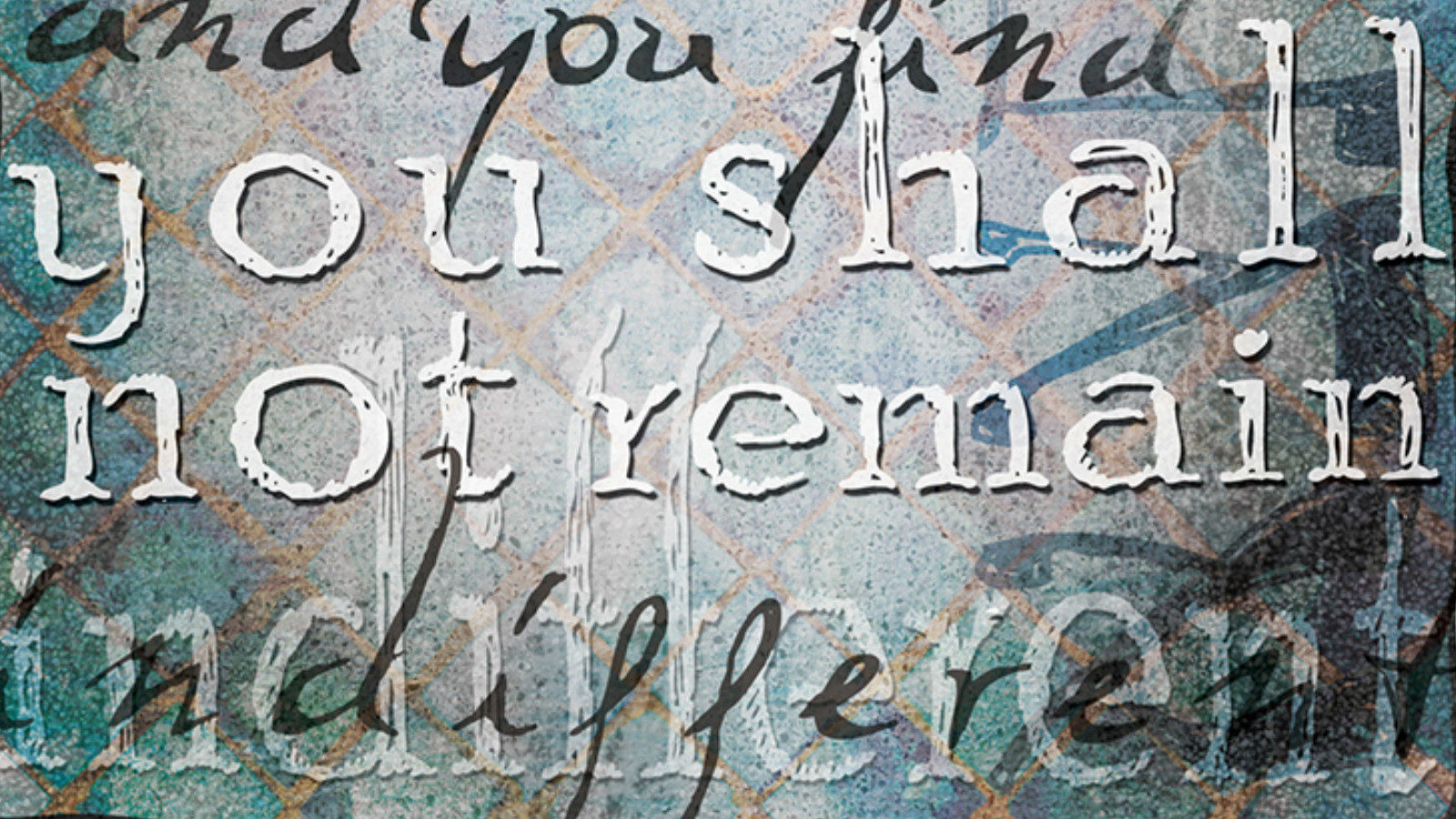Commentary on Parashat Ki Teitzei, Deuteronomy 21:10-25:19
I learned how to be a better parent from watching the early childhood teachers at my kids’ daycare. Their language was sharp and unwavering. Their demeanor serious and calculated. They smiled, but mostly their eyes were focused on ensuring safe spaces in all circumstances. They employed second person singular so small children would pay attention. “You need to wash your hands before snack; You need to be gentle.” It’s one direction after another when you’re leading a pack.
They were, in essence, like Moses. And, also like Moses, the primary messages delivered by the teachers fell into two neat categories: Take care of yourself. Treat others well. Or, in the language of our Torah: Be holy so that others may be holy.
Ki Teitzei opens with the words “When you go out to war against your enemies…”
We’re about to be told, on the Plains of Moab, how to behave when we conquer another people. We’re approaching the Promised Land, the final edition of the instruction manual is being delivered, and to put it bluntly, Moses is about to die. We’re out of time. No more bargaining or revolts or threats to turn back towards Egypt. Our text reads:
With your help, My Jewish Learning can provide endless opportunities for learning, connection and discovery.
When you go out to war against your enemies, and the Lord your God delivers them into your power and you take some of them captive, and you see among the captives a beautiful woman and you desire her and would take her to wife, you shall bring her into your house, and she shall trim her hair, pare her nails, and discard her captive’s garb.” (Deuteronomy 10-14)
Deuteronomy 10-14 is written for a male audience. For warrior men. For ancient Israelite soldiers. I’m not, nor have I likely ever been, part of an elite fighting unit. How can I read this text and make it meaningful? Especially when I feel as if I’ve stumbled upon an intimate directive, one that was spoken only to a small cohort of fighters, getting ready to storm a city? Hey guys! Listen up! There might be some women there that you think are pretty! So make sure you first bring them into your home and take care of them…
One thing is certain, though: We know from the first verse of the book of Deuteronomy that Moses is addressing all of us. We’re standing together, waiting to cross into the Promised Land. Moses didn’t gather the men in a separate camp. No secret handshakes or fraternity rituals on the Plains of Moab.
Moses is super focused and eloquent and using second person plural during his important speech! What does that choice of language do for us, as readers? As listeners? It makes us pay attention, of course. It enjoins us together. It makes us consider how we might absorb the message, play a role in upholding certain values being delivered, glean wisdom, and assist as necessary, even if we’re not the primary audience, even if we disagree with some basic tenets of the law.
Ki Teitzei continues: “She shall spend a month’s time in your house lamenting her father and her mother, after that you may come to her and possess her, and she shall be your wife.”
Look. I don’t really like any of this. From the conquering to the capturing. But the questions we ask ourselves, during the Book of Deuteronomy, can and should push us deeper. How are we going to be a holy people in a holy land? How can we support those around us to make the right decisions? We have a moment in our text where Moses recognizes that captivity brings sadness. That a one-month grace period might be necessary for the beautiful captive to recognize all that’s been lost. That no man should approach his captive, sexually or otherwise, during this time. Holiness is often about recognition – seeing others as they are. Here, our ancient Israelite warriors are told to be empathetic. To keep their distance during the mourning period. In the midst of war, when most can’t be trusted to make the best decisions, there is a mandate for all of us – for those doing the capturing there is empathy, and for those who are witnesses, there is enforcing the law and ensuring that those in captivity are treated with humanity and dignity.
Our decree continues: “Then, should you no longer want her, you must release her outright. You must not sell her for money: Since you had your will of her, you must not enslave her.”
Whoa – wait just a minute! You’ve gone and taken her as a captive, held her for a month, forced her to become your wife, and now you’re going to release her? How is that holy? How is that a sacred act, in a sacred land? It’s not, really. But we stretch, and if you think about it long enough, nobody ever really wants to be married to somebody that doesn’t love them. The one thing that Moses could have added, that would have been helpful, would have been a bit about compensating her for her time. But we’ll take what we can get, and we’ll acknowledge that the act of release, of farewell, without scorn or bitterness, is an act worthy of recognition.
Most of our commentators focus on the preparation of the beautiful captive – what it means to cut her hair, to prepare her nails, to provide her with new clothing. I’m more interested in what our Torah tells us to do when our love isn’t real. Turns out that a big part of our mandate in this week’s Torah portion is to recognize when we’re no longer interested, or when things have shifted for us. And when we do, it’s actually very simple: We say goodbye without scorn or retribution or any type of punishment. Remember: Moses is speaking to all of us, no matter how we’ve chosen our partners. Even if the text is hard to swallow, we have an obligation to absorb and rethink and consider how the words work in our own lives. For that, we must be grateful.



